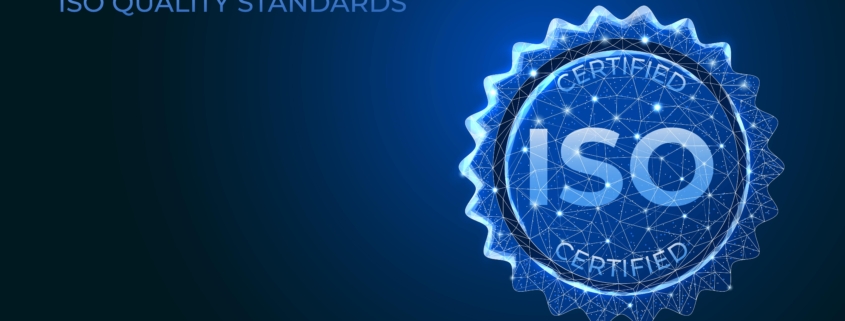Understanding Translation and Localisation Standards: ISO 17100
Translation and localisation are critical components of global business, but ensuring that your content is translated accurately and culturally appropriate can be a challenge. That’s where standards like ISO 17100 come in. In this blog post, we’ll explore the importance of understanding translation and localisation standards, with a focus on ISO 17100, and why it’s essential to work with a trusted localisation company.
What is ISO 17100?
ISO 17100 is a globally recognised standard for translation services. It provides guidelines for the essential processes, resources, and quality assurance required for the delivery of quality translations. ISO 17100 defines specific requirements for translation service providers, including minimum qualifications for translators, project management procedures, and quality control measures.
Understanding ISO 17100 Standards:
ISO 17100 sets the standard for translation and localisation services by outlining specific requirements that must be met. Some of the key requirements of ISO 17100 include:
- Competence of Translators: ISO 17100 requires that all translators employed by a translation service provider have the appropriate education, experience, and training necessary to deliver quality translations.
- Project Management Procedures: ISO 17100 requires that translation service providers have specific project management procedures in place to ensure that translations are delivered on time, within budget, and to the required quality standards.
- Quality Control Measures: ISO 17100 requires that translation service providers have quality control measures in place to ensure that translations are accurate, culturally appropriate, and free of errors.
Why is ISO 17100 Important?
ISO 17100 is important for both translation service providers and their clients. For translation service providers, adhering to the ISO 17100 standards provides a framework for delivering high-quality translations consistently. By following these standards, translation service providers can ensure that their translations are accurate, culturally appropriate, and meet the needs of their clients.
For clients, working with a translation service provider that adheres to the ISO 17100 standards provides peace of mind, so they can expect:
- Consistent Quality: ISO 17100 ensures that translation service providers follow stringent quality control measures, resulting in consistent and high-quality translations. This includes rigorous proofreading, editing, and review processes to ensure accuracy and fluency in the target language.
- Qualified Translators: ISO 17100 requires translation service providers to employ qualified translators who possess the necessary linguistic skills, subject matter expertise, and industry knowledge. This ensures that the translations are accurate, specialised, and culturally appropriate.
- Confidentiality and Data Security: ISO 17100 emphasises the importance of confidentiality in translation projects. Translation service providers adhere to strict data protection policies and maintain confidentiality throughout the translation process, safeguarding client information and intellectual property.
- Efficient Project Management: ISO 17100 mandates that translation service providers have well-defined project management procedures in place. This ensures efficient coordination, communication, and timely delivery of translations, meeting client deadlines and requirements.
- Cultural and Contextual Understanding: ISO 17100 emphasises the importance of cultural and contextual understanding in translation. Translation service providers consider cultural nuances, local customs, and specific target audience preferences to ensure that translations resonate effectively with the intended audience.
Conclusion:
In conclusion, understanding translation and localisation standards like ISO 17100 is critical for ensuring that your translations are accurate and culturally appropriate. In TW Languages quality is one of our Key Performance Indicators and we use this as a measure of performance and success. We don’t compromise on quality and continually review our systems and processes to ensure the highest standard. TW Languages was certified to International Standard ISO 17100 in July 2016 & ISO-IEC 27001 – 2013.



